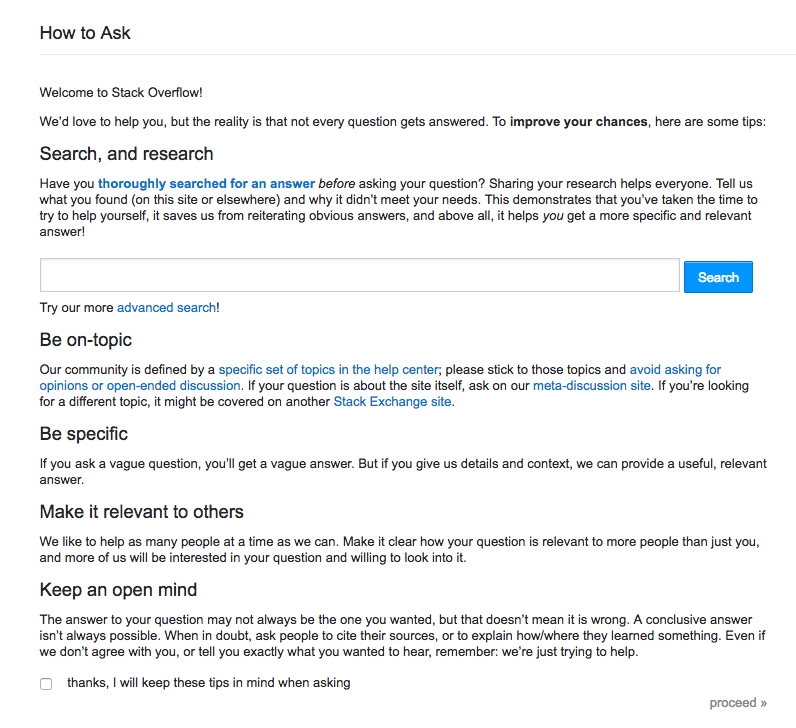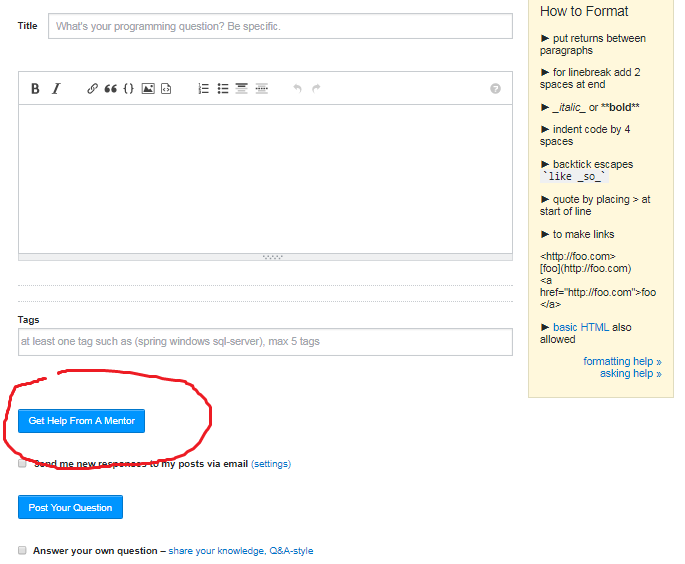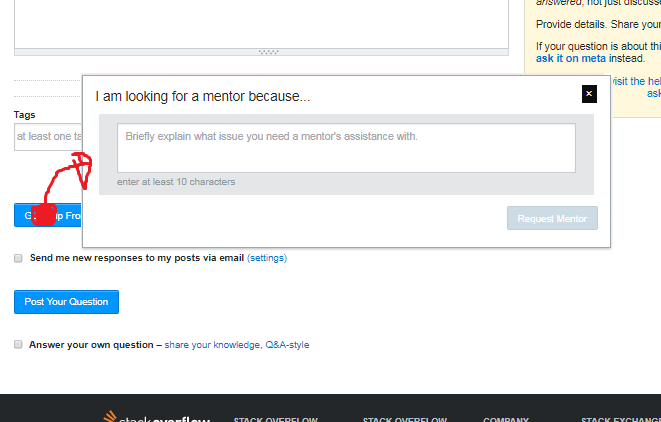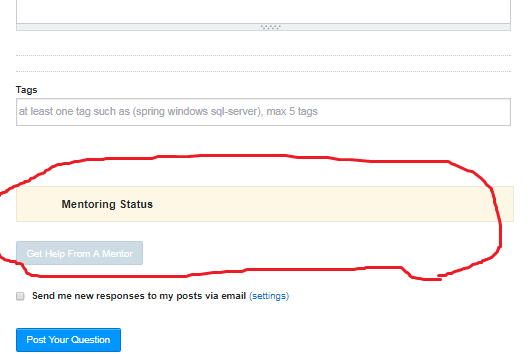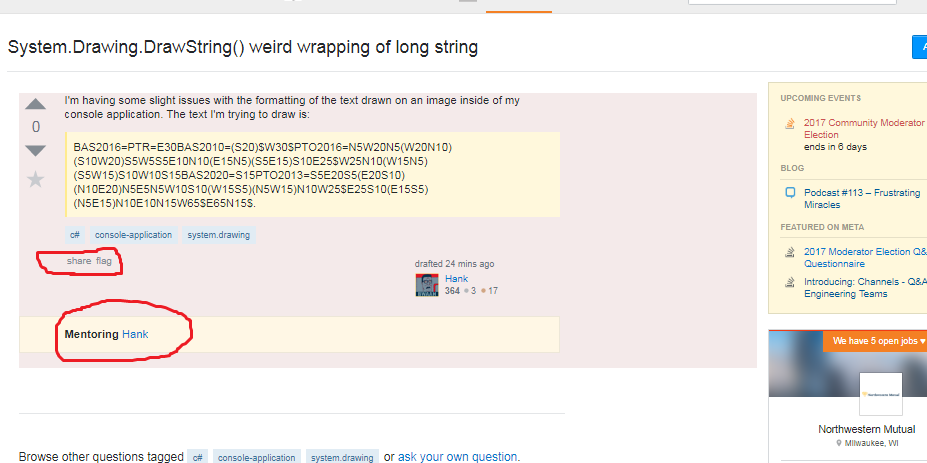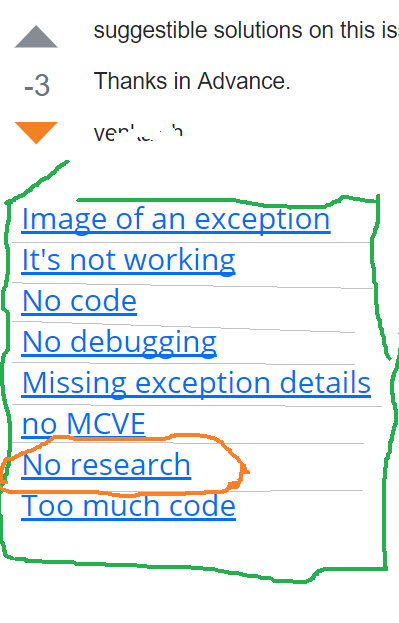- What do you think about this idea?
I think it's a well-intentioned, but misdirected idea. It seems to ignore what is, at least in my opinion, the biggest problem Stack Overflow has, which is a fundamental aspect of human nature. The people who are altruistically-minded, or even have the pairing of being reward-motivated and skilled enough to produce high-quality content for the site are enormously outnumbered by the people who just don't give a crap, and who rely on the gamification that motivates lower-quality handling of answering.
First and foremost on that question of lower-quality of answering, is people's willingness to write a new answer, generally of low-quality, for a question that is either unclear (so their answer is one of a half-dozen or more guesses) or which has already been asked and answered in a much clearer way (so the question should have been closed as a duplicate rather than being answered).
Put another way: this idea appears to focus on helping people that, frankly, are never going to contribute good, useful, high-quality content to the site, and who probably don't really want the help in the first place.
One problem Stack Overflow has always struggled with, as near as I can tell, is the dichotomy between the idea of helping individuals and building something that is useful for the community as a whole. IMHO, the latter is the real goal of Stack Overflow, and that goal is not served by spoon-feeding people who aren't willing or able to sign on to it.
But this mentoring idea does exactly that. It will greatly add to the work-load of dealing with low-quality contributors to the site, without appreciably improving the overall quality of the site. The people who find themselves in need of mentoring are still going to ask duplicate questions, will still show up having done little or no research of their own, and will still be asking questions that they should and could have answered for themselves by just reading the documentation.
Opinions vary, and I understand some people, even those answering questions instead of asking them, view Stack Overflow as just a large-scale helpdesk for programmers. But for me, the primary value here is in fact the building of an all-encompassing repository for good programming questions and answers, and this goal is at odds with a mentality that every person asking a question deserves an effort at answering their question.
- What concerns do you have with how we’re deciding to implement this initially?
My biggest concern is the lack of collaboration tools that would help it succeed, first and foremost being a mechanism to pair up mentor and mentee, and to provide a mechanism for the mentor to have immediate access to the mentee's work as they receive help.
My other concern is, of course, as stated above: this idea seems likely to wind up dedicating the most resources to those least deserving of them. That is, the people who view Stack Overflow as just something to serve them, rather than something they can participate in and help improve.
- And most importantly: are you interested in volunteering to be a mentor?
No way, no how. I've already seen how a person who is poor at asking questions can become a huge time suck if you let them. I've fallen into that trap more than once, and I work hard these days to avoid it. I pity those who are willing to volunteer for mentor service in this program; to be sure, they will once in a while wind up helping a person who genuinely wants to put their best foot forward and is willing to take constructive criticism to do so. But I'm sure the vast majority of interactions will be with the exact opposite of that. Our mentors are going to need a lot of patience to get through that.
In a perfect world, there'd be special training to help people understand how to ask good questions. In terms of research, presentation, and construction. Such training would be provided separately, and would be a prerequisite for asking questions on a site like Stack Overflow. Most importantly, it would have an outcome-testing aspect, ensuring that those who are certified as qualified authors of questions have in fact met the goals of that certification.
In fact, it's why I liked this answer and have myself thought a similar design would be appropriate. The idea of mentoring isn't bad, it's just that it's too costly for the reward when it requires an actual person for each person in need.
I favor instead a question-authoring user interface forced on inexperienced users that would guide them through the composition of a good question. This is by no means a trivial task, but IMHO a much more worthy and potentially fruitful area of research. Templates and automation together, to constrain how a new user presents their question (say, a form with a questionnaire format for example), and to evaluate in an automated way using, for example, modern language-processing/neural net pattern matching technologies to judge whether a question is coherent, provides adequate details, and a suitable code example.
On that latter point, things like detecting that a user is asking about code that doesn't work or which throws an exception, but has not provided an actual description of the behavior of the code, or any specific details about the exception, such as the type, message, and stack trace. It may even be feasible, in conjunction with a template approach, to know when a question likely requires a full MCVE, and whether that question has in fact included one.
Templates can provide that framework for the user to work within, and may also help simplify the job of the automation, by providing additional context for the pattern-matching. In a manner similar to the game-tutorial concept, there could even be multiple levels of complexity, starting from the most restrictive, and loosening up as the user gains experience and demonstrates competence, until they have full access and can write a post without any constraints at all.
If there's going to be research, I think it best to focus on solutions that reduce rather than increase the demand on volunteer services. Stack Overflow is already straining under the demand that exists today, so I don't think a new program that significantly adds to that work-load is likely to work out.
